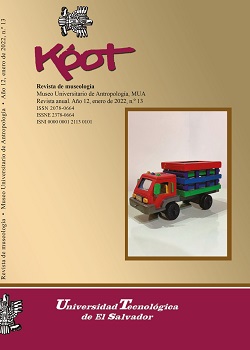What is existentialism?
DOI:
https://doi.org/10.5377/koot.v1i13.14798Keywords:
Existencial phenomenological, Phenomenological sociology, Existentialism – Criticism and interpretation - XIX century, Philosophy, Philosophers french, Philosophers modern, Rationalism, Civilization – Philosophy, IdealismAbstract
The article makes an approach to existentialism by analyzing its fundamental theses beginning from its antecedents in the history of philosophy, as well as from the most relevant works written by a variety of authors who have claimed to be existentialists themselves. However, the term existentialist can be extended to other thinkers who reject it, and even to authors from earlier periods and who have not been identifed as such. An essential feature of existentialism is, precisely, this apparent indecisiveness of their thought and the contrast it has with the low number of thinkers who accept such a denomination due to its ubiquitous historical and geographical location. Existentialism is not only a philosophical school but the conceptual embodiment of an attitude, and the deep study of human existence.
Revista de Museología "Kóot" No.13 2022: 20-37
Downloads
4680
Downloads
Published
How to Cite
Issue
Section
License
Copyright (c) 2022 Revista de Museología "Kóot"

This work is licensed under a Creative Commons Attribution-NonCommercial-ShareAlike 4.0 International License.

